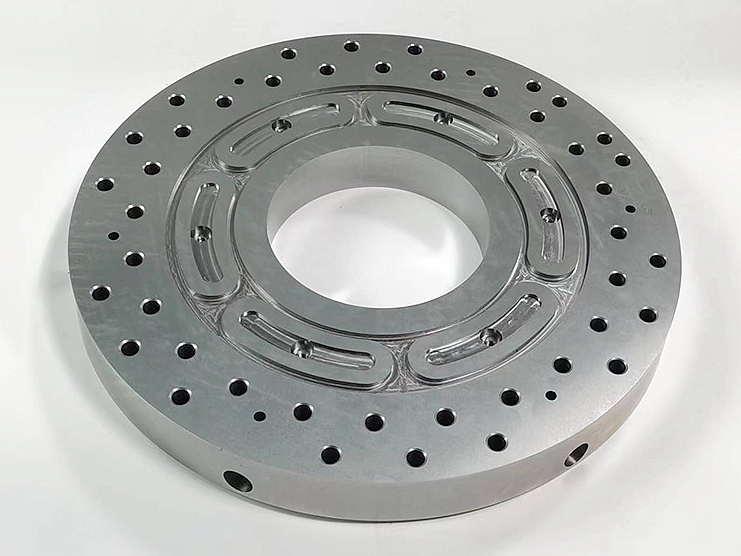Carbon Steel CNC Machining for Heavy-Duty Agricultural Machinery Components
Introduction
Heavy-duty agricultural machinery demands components that offer exceptional strength, durability, and resistance to extreme environmental conditions. Carbon steel, recognized for its toughness and reliability, is extensively used for manufacturing robust agricultural equipment components. This case study explores our specialized Carbon Steel CNC Machining capabilities, highlighting the manufacturing processes, material properties, surface treatments, industry applications, advantages, and limitations.
Manufacturing Process
Our facility employs advanced CNC machining processes tailored specifically for carbon steel, ensuring precision, strength, and efficiency for agricultural machinery components:
CNC Milling Service: Ideal for producing robust components with complex geometries and critical structural elements, CNC milling delivers precision machining that meets stringent agricultural industry standards.
CNC Turning Service: Essential for cylindrical and symmetrical parts such as shafts and pins, this service guarantees precise tolerances critical for machinery performance.
CNC Drilling Service: Ensures accurate hole placement and sizing, crucial for assembly precision and mechanical integrity in heavy-duty components.
Multi-Axis Machining Service: Facilitates complex designs, enabling the machining of multiple surfaces simultaneously for enhanced efficiency and accuracy.
These sophisticated processes ensure components reliably withstand the rigorous requirements of agricultural machinery operation.
Material: Carbon Steel
Carbon steel is favored in agricultural machinery manufacturing due to:
High strength and toughness, suitable for heavy-duty applications.
Excellent machinability, enabling intricate and precise designs.
Good weldability, ensuring ease of assembly and repair.
Cost-effectiveness relative to alternative high-strength materials.
Common grades extensively used include 1018 Steel, 1045 Steel, 4130 Steel, 4140 Steel, and A36 Steel, each carefully selected based on specific application requirements and performance criteria.
Surface Treatments for Enhanced Performance
Appropriate surface treatments greatly enhance carbon steel components' durability and resistance to environmental stressors, significantly extending their operational life:
Galvanizing: Provides robust corrosion protection, essential for components subjected to prolonged exposure to moisture, soil, and chemical agents.
Black Oxide Coating: Offers effective protection against rust and aesthetic enhancement, maintaining component integrity and visual appeal.
Heat Treatment: Enhances the mechanical properties, improving overall durability, tensile strength, and resistance to operational stress.
Powder Coating: Adds a protective layer against environmental damage, chemicals, and abrasion, while significantly improving component appearance.
Each treatment method is meticulously selected to align with heavy-duty agricultural machinery's specific performance and application demands.
Industry Application
Carbon steel CNC machined components are vital across various agricultural machinery applications:
Tractors and Harvesters: Components like frames, gears, and axles rely heavily on carbon steel for structural integrity and longevity.
Tillage Equipment: Durable blades and wear-resistant parts ensure consistent performance and minimal downtime.
Seeding Equipment: Precisely machined, robust components guarantee accuracy and reliability, critical for consistent crop yields.
Load-Bearing Structures: Frames and support elements designed to withstand rigorous operational stresses and harsh environmental conditions.
Our Agricultural Machinery components made from carbon steel significantly contribute to machinery performance, reliability, and extended service life in demanding operational conditions.
Advantages and Limitations
Advantages:
Superior Durability: Exceptional mechanical strength ensures component longevity even under severe agricultural operating conditions.
Cost-Effective: CNC machining offers affordable solutions for mass production of consistent, high-quality components.
High Machinability: Facilitates precise manufacturing of complex and detailed components.
Versatile Surface Treatments: Multiple treatment options allow customization for corrosion resistance and operational endurance.
Limitations:
Corrosion Vulnerability: Carbon steel components risk corrosion without proper surface treatments, impacting lifespan and operational efficiency.
Heavier Weight: Compared to materials like aluminum, carbon steel’s increased weight could affect machinery efficiency and fuel consumption.
Tool Wear: Requires controlled machining parameters to avoid excessive tool wear, potentially impacting machining costs.
Despite these challenges, carbon steel's durability, strength, and overall cost-effectiveness considerably outweigh its limitations in agricultural applications.
Conclusion
Our carbon steel CNC machining services offer precision-crafted, reliable components essential for robust agricultural machinery. Combining advanced machining processes, carefully selected materials, and tailored surface treatments ensures superior component performance in challenging agricultural environments.
FAQs
Why is carbon steel ideal for agricultural machinery components? Carbon steel provides unmatched durability, strength, machinability, and affordability, making it perfect for heavy-duty agricultural applications.
Which CNC machining processes offer optimal results with carbon steel? CNC milling, turning, drilling, and multi-axis machining services deliver the precision and efficiency necessary for agricultural machinery components.
What surface treatments effectively prevent corrosion in carbon steel components? Treatments like galvanizing, black oxide coating, powder coating, and heat treatment significantly enhance corrosion resistance and durability.
How does the machinability of carbon steel affect production efficiency? Excellent machinability ensures rapid, precise, and cost-effective production, especially beneficial for mass manufacturing.
What considerations are essential when selecting carbon steel grades for agricultural machinery? When choosing carbon steel grades, strength requirements, corrosion resistance, machinability, weldability, and cost are key factors.

